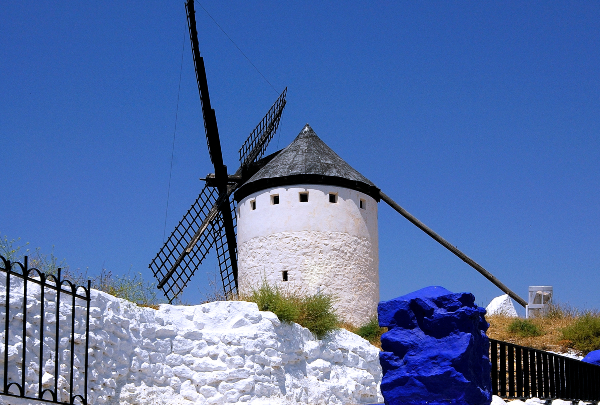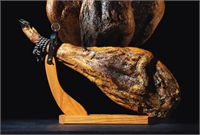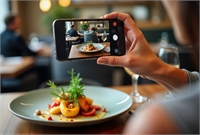Round table
How can a region establish itself as a destination for gastronomic tourism?

Having cultural heritage and a rich gastronomic tradition is the first step to becoming a destination in this tourism segment. However, in such a competitive environment with a wide range of offerings, establishing yourself as a gastronomic destination requires you to work to high standards when developing products, experiences, routes and strategic plans, as well as improving infrastructure such as access, accommodation and signage. It is also essential to work on storytelling and devise promotion and communication strategies.
Related talks
Round table

Gastronomic heritage as a tourist resource. Using gastronomy as a tourist resource.
11:00 - 11:40 HRS
Enrique Pérez
Chef at El Doncel* (Sigüenza, Guadalajara, Spain)
Carlos Teixeira
Chef at Herdade do Esporão* (Reguengos de Monsaraz, Portugal)
Juan Carlos García
Chef at Vandelvira* (Baeza, Jaén, Spain)
Rubén Sánchez Camacho
Chef at Restaurante Epílogo* (Tomelloso, Ciudad Real, Spain)

Destination women: Tuscany, best practices in women's tourism. Tuscany: the challenge of maintaining success
13:00 - 13:30 HRS
Francesco Tapinassi
General Director of the Tuscany Tourism Promotion Agency
Clara Svanera
Journalist and head of international relations and women's tourism at the Tuscany Tourism Promotion Agency
Round table

360º wine tourism. Much more than just wineries
10:30 - 11:00 HRS
Rosa Melchor
President of the Spanish Association of Wine Cities (Acevin) and the Wine Routes of Spain.
Francisco Fernández
CEO Bodegas Pago de La Jaraba (Villarobledo, Albacete, Spain)
Santiago Vivanco
Owner of Bodegas Vivanco (Briones, La Rioja, España)
Lucía Fernández Rivera
CEO of Familia Fernández Rivera (Pesquera de Duero, Valladolid, Spain)
Round table

Redefining luxury
12:15 - 13:00 HRS
Pepe Simón Gámez
CEO of Dehesa Monteros (Serranía de Ronda, Málaga, Spain)
Enrique Valero
Managing Director of Abadía Retuerta (Sardón de Duero, Valladolid, Spain)
Lucía Toro
Managing Director of Nuba (Spain)
Ramón Cobo
Founder of WoolDreamers (Mota del Cuervo, Cuenca, Spain)
Round table

Collaboration between the public and private sectors in developing non-urban gastronomic tourism.
10:30 - 11:00 HRS
Ana Isabel Fernández Samper
Director General of Tourism, Trade and Crafts at the Regional Government of Castilla-La Mancha (Spain)
Almudena González Gutiérrez de León
Professor of Tourism and Hospitality Law and Storytelling Adapted to Regenerative Tourism Destinations at Saxion University of Applied Sciences (Overijssel, Netherlands)
Rosa Vañó
Commercial Director at Castillo de Canena (Jaén, Spain)
Lucie Lefèvre
Local coordinator for Bordeaux for the Great Wine Capitals Global Network (France)
Round table

The recipe for gastronomic success in villages with fewer than 300 inhabitants:
12:40 - 13:20 HRS
Nacho Manzano
Chef at Casa Marcial*** (Arriondas, Parres, Asturias, Spain)
David Yárnoz
Chef at El Molino de Urdániz** (Urdániz, Navarra, Spain)
Benjamín Lana
Managing Director of Vocento Gastronomía (Madrid, Spain)
Round table

Who brings customers to rural restaurants?
11:45 - 12:25 HRS
Anna Bruno
Journalist specialising in digital tourism and gastronomy (Italy)
Francisco Castro
CEO of Adentity (Spain)
Samuel Moreno
Chef at El Molino de Alcuneza* (Sigüenza, Guadalajara, Spain)
Clara Pérez Villalón
Influencer, chef, and culinary consultant, content creator (Madrid, Spain)
Round table

How to create an à la carte gastronomic destination: The case of 'Alto Asón'. Tasting presentation: 'Echoes of the Asón'
12:25 - 13:05 HRS
Nacho Solana
Chef at Solana* (Ampuero, Cantabria, Spain)
David Pérez
Chef at Ronquillo (Ramales de la Victoria, Cantabria, Spain)
Jesús Ramón Ochoa
President of Mancomunidad del Alto Asón (Cantabria)




